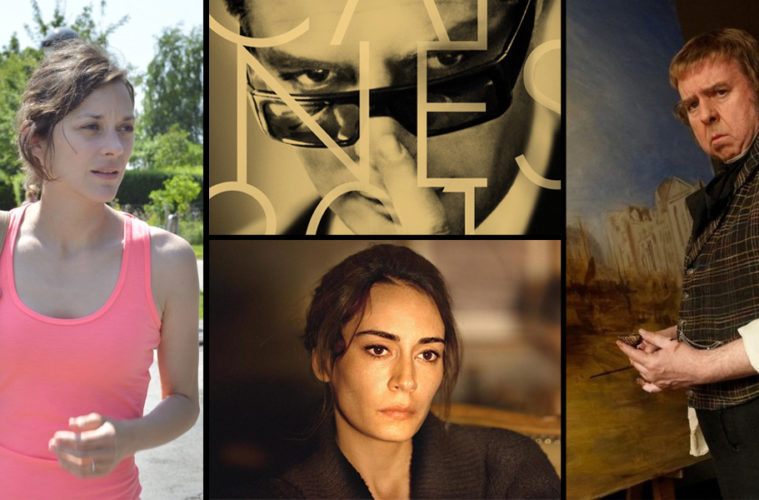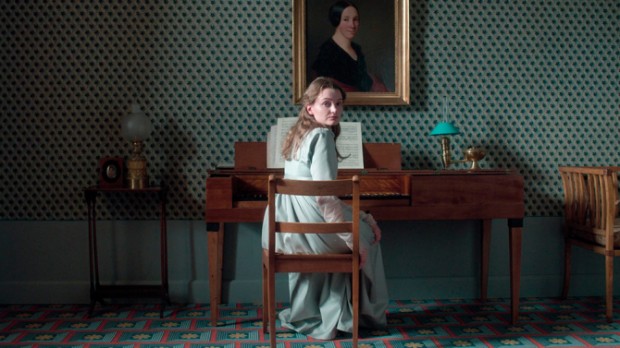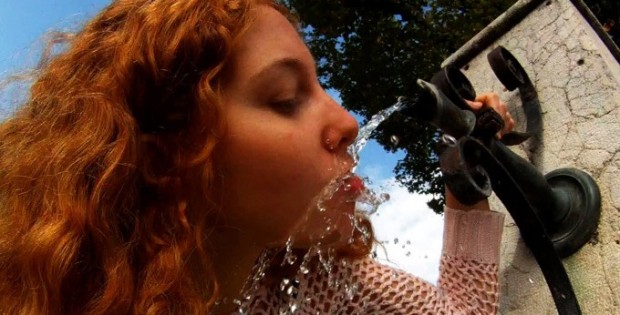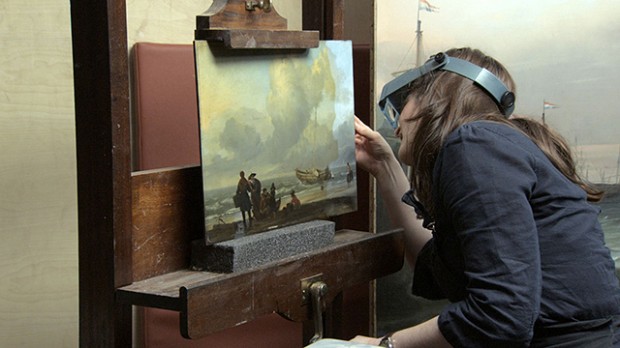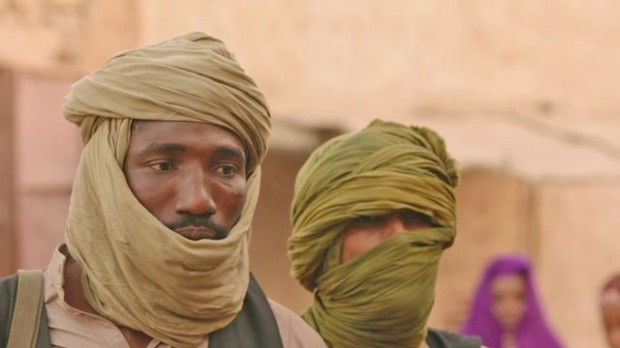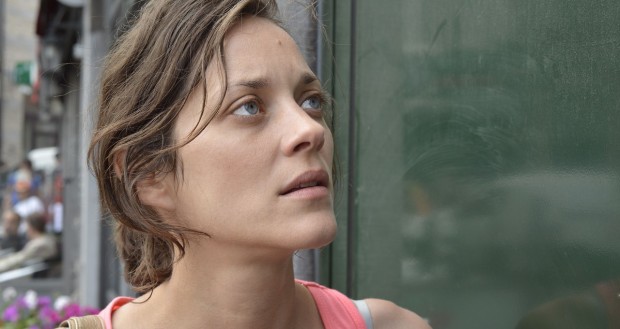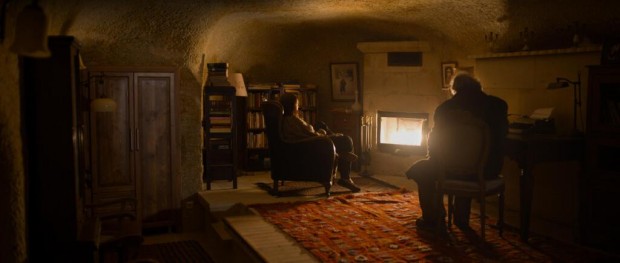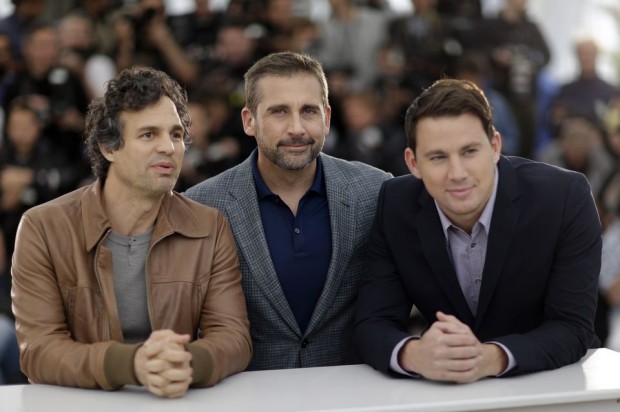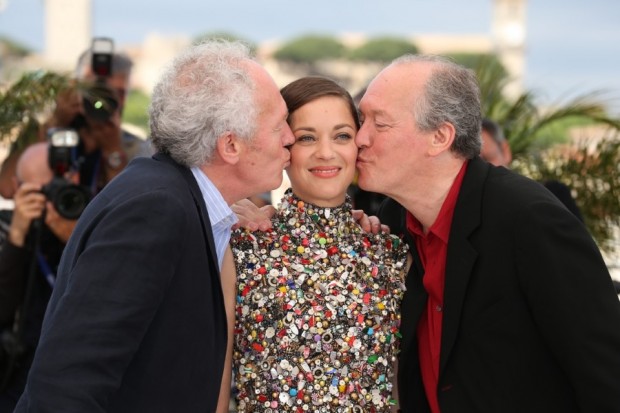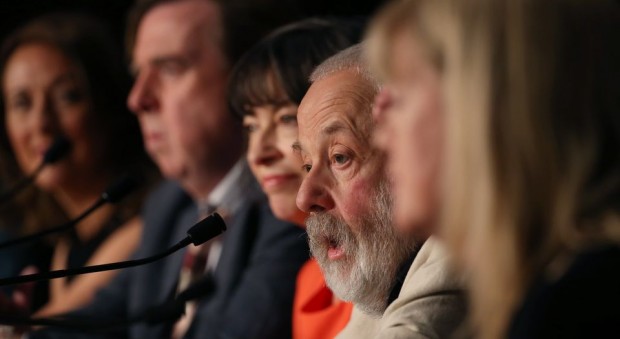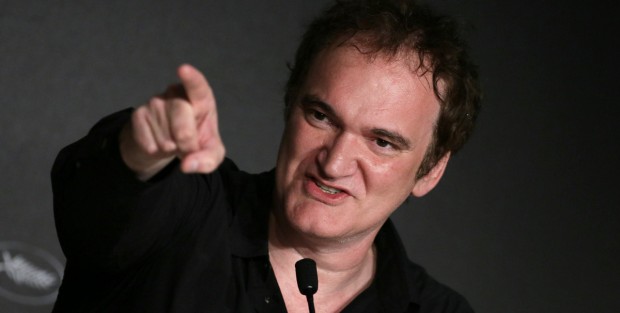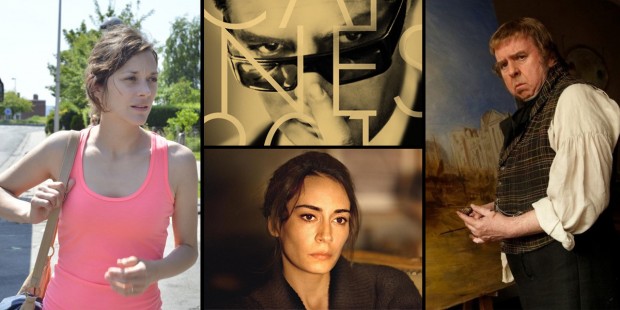
The 67th Cannes Film Festival closed a day early this year due to the European elections — but, being a-first timer, it seemed like it would last forever. While not as daring as some of my colleagues who took in over 50 films, I did manage to average around 3-4 a day in-between writing sessions, line queuing, chomping on jambon baguettes, and downing bottles of rose.
As I reflect back on the 36-and-a-half films I saw — apologies to Zhang Yimou‘s Coming Home, a well-meaning melodrama with Gong Li that I simply couldn’t finish — it’s interesting to see how much the Main Competition was, while not necessarily the weakest of the festival, in many ways the least-ambitious. There were some marvelous films, but many of these had a sense of checking in with old masters who’d perfected a style — not necessarily a bad thing. Meanwhile, the Un Certain Regard section had an easily collected mixed bag, but at least five of the titles felt absolutely revelatory in their style and aesthetics. The now-infamous “beach screening” of Abel Ferrara‘s Welcome to New York felt like another thing entirely: as Danny Kasman put it, “where a film by a major auteur is screened in the city named Cannes and projected in a format essentially identical to official screenings… so then what is the Festival de Cannes?”
All that being said, Cannes is still Cannes for a reason, and the sensation of sitting through something truly new and original without expectation is thrilling (Or even realizing what a terrible mess you’ve gotten yourself into — sorry, Ryan Gosling‘s Lost River.) I highly doubt I’ll forget my screening of Godard‘s Goodbye to Language in which various 3D stunts by the director had the 2,400-person Lumiere theater sounding with rapturous applause (an audience that was primed for it, but still exciting nonetheless). Below, I present the 10 films at the festival that excited me most, and ones that I hope will excite you as they move beyond the Croisette.
Amour Fou (Jessica Hausner)
What will likely be the highlight of the Cannes Film Festival: Jessica Hausner‘s Amour Fou. The Austrian director’s sixth film is ecstatically original: a work of film-history-philosophy with a digital-cinema palette of acutely crafted compositions. Amour Fou seamlessly blends together the paintings of Vermeer, the acting of Bresson, and the psychological undercurrents of a Dostoevsky novel. It is an intensely thrilling work that manages to combine a passionately dispassionate love story of the highest order with a larger socio-historical examination of a new era of freedom, and the tragedy beset by those trapped in its enclosed world. (Full Review)
Goodbye to Language (Jean-Luc Godard)
The film is called Adieu au langage. Goodbye to Language. Why language? The goodbye is to cinematic language. The idea of cinema as a translator, as communication. Instead, the images are removed from their language. They are reality. 3D reality. A book; a table; a tree; a phone. They pop — the colors bleed into saturation. The new cinema. Representation disappears. The iPhone cinema. Arnheim and Bazin stood at polar opposites. Godard has found a way to wield them together. Total cinema as pure reality — the wind in the trees, but nothing to limit them as simply the staging of reality. Not a manifestation of reality. Reality as reality. (Full Review)
Hard to Be a God (Aleksei German)
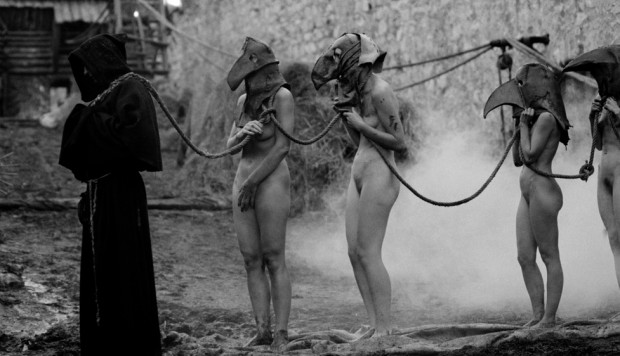
It is, without a doubt, a stunningly radical work: a three-hour journey into the heart of darkness that doesn’t just grab you, but envelops, haunted by a moral bleakness that leaves nothing beyond the images of terror it creates. While German remains simply a curiosity in the United States (he is as beloved as Tarkovsky in Russia), Hard to Be a God is the perfection of the director’s long-take approach, likely to remain unmatched for years to come. (Full Review)
Jauja (Lisandro Alonso)
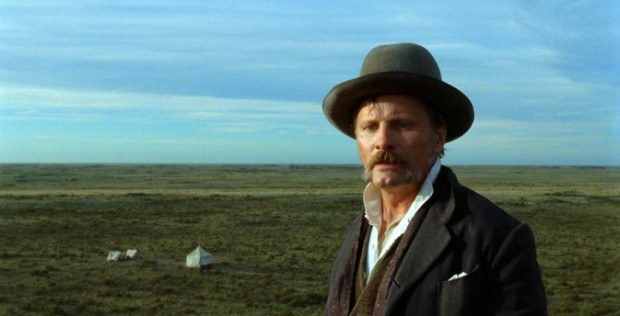
Jauja, the strange, beguiling, and excitedly didactic new film that premiered in the Un Certain Regard section of the Cannes Film Festival, is pure Alonso, even as it shows him transforming into something else. While Alonso has certainly embraced “narrative” (oh, that dirty word!), it would be laughable to call this anything resembling conventional, reinforcing the director as one of the most exciting slow-cinema filmmakers in the contemporary landscape. A 19th-century period piece, Jauja might be described as a quasi-Herzogian experience into the rocky terrain of the Argentinean desert, but Alonso has made this journey of madness his own thing, a film so possibly deceitful with its ultimate meaning that it’s best to buckle your seatbelts and enjoy the ride. (Full Review)
Mr. Turner (Mike Leigh)
Leigh, the director of Naked, Topsy-Turvy, and Another Year, works on a microcosmic scale, investigating psychology through dialogue and camera movement, finding precise moments at which the human shell can break. But both are perceptibly searching for the in-between — or, as one character in the film suggests, turning ‘particles into chaos.’ These two artists search for the essence of life through the blending of the material building blocks of the world, offering much to ponder without necessarily asserting their own importance. Even if the artist is a fool, the work will always stand. (Full Review)
National Gallery (Frederick Wiseman)
As National Gallery will show, paintings can communicate many things to many different people, and this latest institution makes for a unique look at the role of art in public life. Wiseman — less than nine months removed from one of his greatest films, At Berkeley — is once again looking at an educational system. While we have some behind-the-scenes discussions of public relations and financial hardships, these are probably the least-compelling exchanges in National Gallery; instead, poetic reverberations between public and art bring the film to life. (Full Review)
Timbuktu (Abderrahmane Sissako)
Abderrahmane Sissako can no longer be called one of the greatest African directors of our time; he has become, simply, one of the greatest directors of our time. With his fifth feature, Timbuktu, Sissako fuses the poetic visual language of Waiting for Happiness with the political urgency of Bamako to bring about a revelatory work, something along the lines of a Howard Hawks jihadi-hangout movie. I mean that as a very good thing. (Full Review)
Two Days, One Night (Jean-Pierre and Luc Dardenne)
Once again, the most exciting filmmakers in world cinema have crafted a staggeringly transcendent Parable of the Poor — a view into the dichotomy of work and grace, along with the emergence of self-worth. If one must necessarily ask what is ‘new’ here, it’s that the Dardennes are becoming filmmakers who are abandoning some of their rough-and-tumble style for a cleaner, more elegant form of storytelling, aesthetics, and performance, most notably as this latest masterwork stars The Immigrant’s Marion Cotillard. (Full Review)
Welcome to New York (Abel Ferrara)
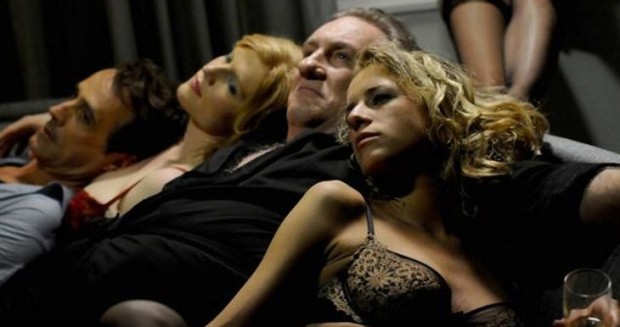
Welcome to New York is a bold, sometimes absurdly funny, and often-horrifying look into the Dominique Strauss-Kahn affair, wherein the former French president of the IMF lost his position after a scandal involving a New York hotel maid he sexually assaulted. But the details of the affair, the trial, and the media scandal have all been removed, leaving only a psychological investigation which fits well within Ferrara’s oeuvre. It seemed unlikely that the director of Bad Lieutenant and Ms. 45 would tackle such a recent event with ripped-from-the-headlines style, but the writer-director’s impulses perfectly groove with this material, centering on only Gerard Depardieu’s pig of a man — a man with total power and, scariest of all, the will to exploit it. (Full Review)
Winter Sleep (Nuri Bilge Ceylan)
A brutal portrait of a man, Winter Sleep, for three hours and seventeen minutes, plunges us into Aydin’s thoughts, logic, and feelings as he slowly comes to understand the personality he’s developed over the years. It’s an interesting step for Ceylan, who, after becoming the primary arbiter of Turkish cinema around the globe, seems to be entertaining his own version of Bergman’s Scenes from a Marriage. He has not lost a focus on the elemental beauty of environment that made both Climates and Once Upon a Time in Anatolia so thrilling, but while Anatolia felt content to be more of a philosophical rumination that only approached the essential nature of its characters when nearing a conclusion, Winter Sleep finds a way to weave these threads simultaneously. (Full Review)
The Rest
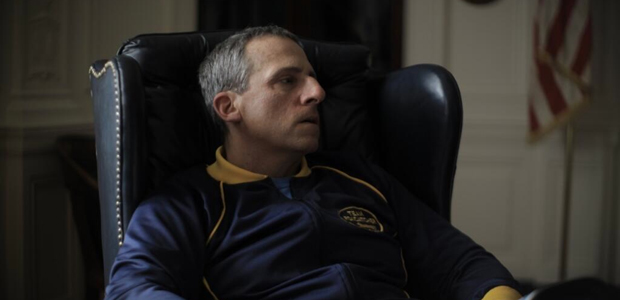
Foxcatcher (B+)
Leviathan (B)
Maps to the Stars (B-)
The Tale of Princess Kaguya (B-)
Saint Laurent (C+)
The Homesman (C)
Grace of Monaco (C-)
Mommy (C-)
The Search (C-)
The Captive (D+)
Lost River (D)
Features
Foxcatcher Team Talks Veracity, Preparation, the Power of Silence, Casting, and More
David Cronenberg and Cast Talk Maps to the Stars, Sex In Cars, Hollywood, Comedy, and More

Mike Leigh Talks Mr. Turner, Art Mirroring Cinematography, Sociopathic Genius, and More at Cannes
The Future Is Coming To You: Assayas, Binoche, and More Talk Clouds of Sils Maria at Cannes
Gabe Polsky and Viacheslav Fetisov Talk Hockey, Red Army, Werner Herzog, and More at Cannes
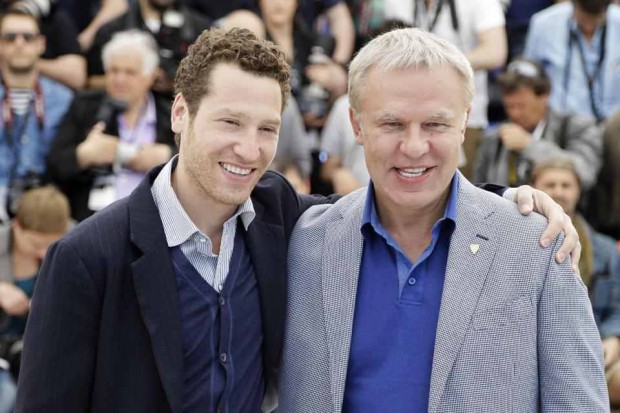
Quentin Tarantino Pronounces the Death of Cinema, Longer Django & More at Cannes Press Conference

